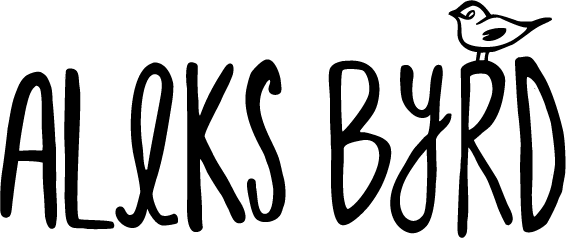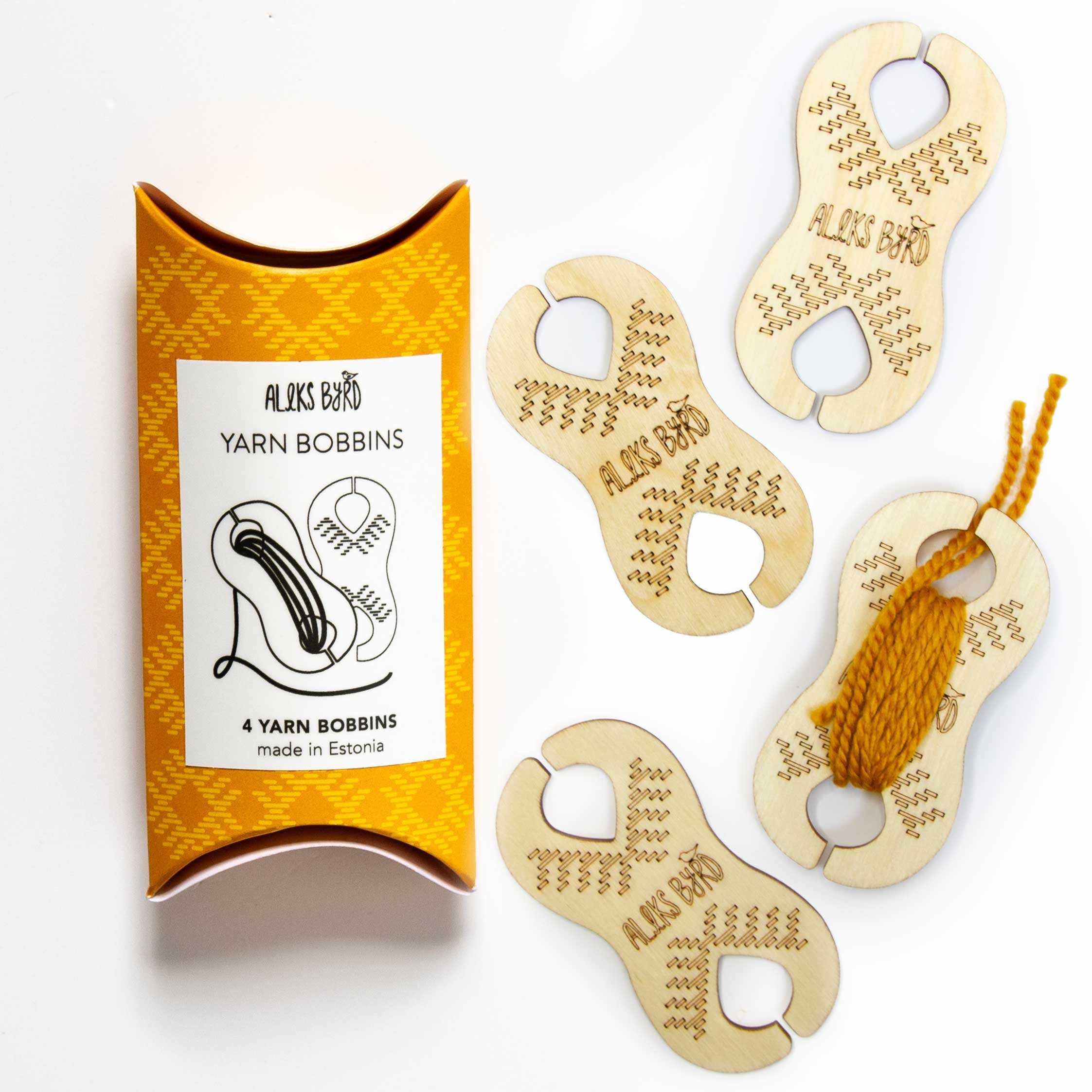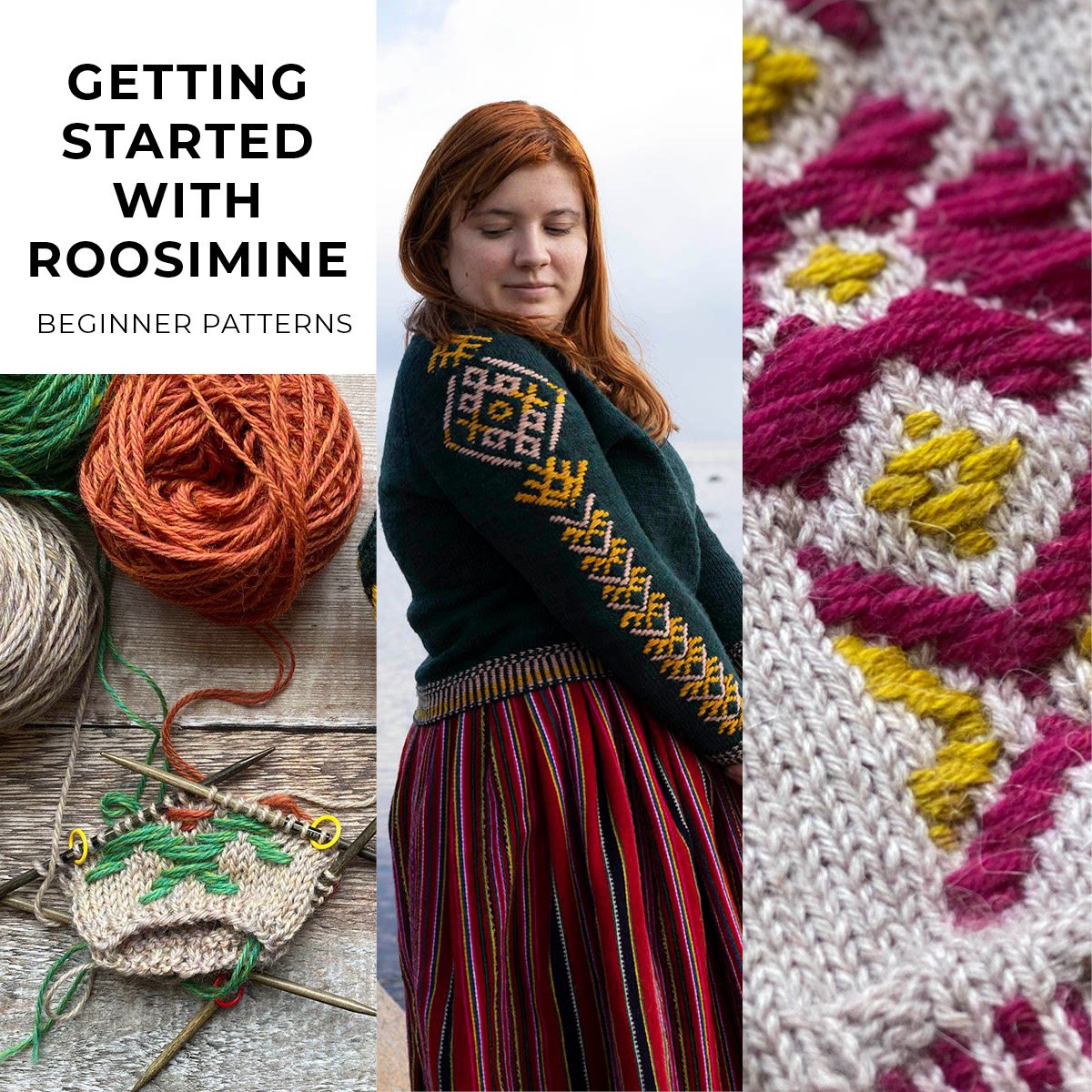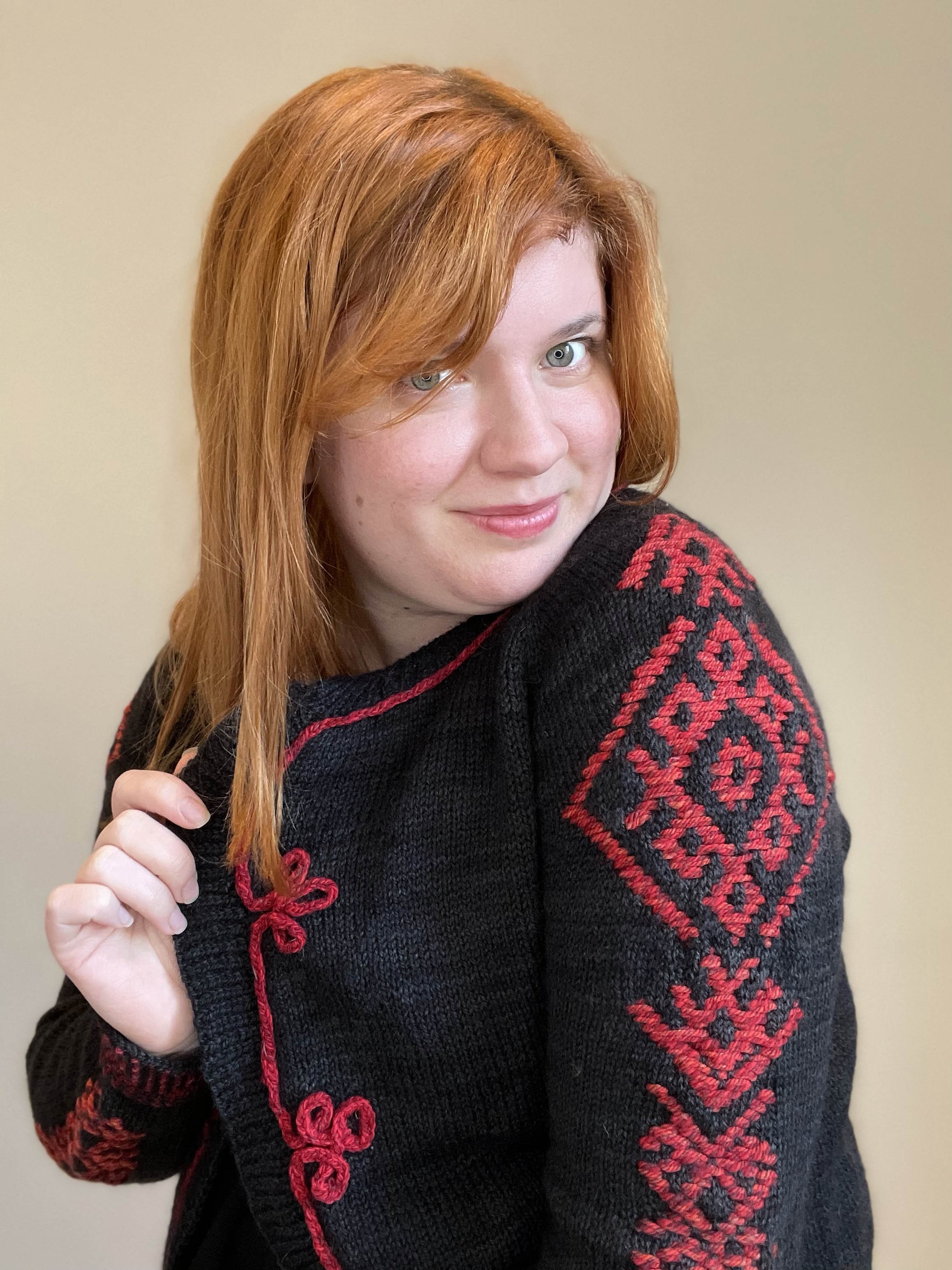Roosimine
Roosimine is an Estonian inlay technique that creates the appearance of embroidery through intentional floats in contrasting yarn on the right side of your knitting. The name Roosimine translates to “decorating with roses”. It is believed to have been inspired by a style of short stitch embroidery done on the Estonian island of Muhu. This technique can be called both Roosimine and Roositud. Roosimine is the verb or action of doing the technique, while Roositud refers to the finished product.
Traditional Roositud gloves with knitted with many different patterns and colors using the Roosimine technique from the coastal area of Tõstamaa is south western Estonia. These gloves I purchased from Tõstamaa Käsitöökeskus.
Roosimine makes the most out of floats by flaunting them in contrasting colours on the right side of your knitting, to create beautiful embroidery-like patterns. The technique comes from the scenic coastal region of south-west Estonia, most notably Tõstamaa. Roosimine was used to create highly decorative gloves and stockings in the 19th century with geometric rose-like patterns. It was reserved for treasured knitwear worn on special occasions, dowries and as ‘Sunday best’.
Much like intarsia, the patterns created with Roosimine are placed in select places, such as the back of gloves and down the outside leg of stockings. As time passed, the technique was forgotten with the changing styles of knitwear. But all was not lost, and, a century later, Roosimine was rediscovered by Anu Randmaa while making a traditional Tõstamaa folk costume that needed decorative Roosimine stockings. While traditional gloves and stockings are still knit at the Tõstamaa Käsitöökeskus (Tõstamaa Handicraft centre) run by Anu, this technique has gone beyond knits reserved for special occasions, and now includes beloved pieces to be admired and worn every day It is a wonderful and easy technique to add to any project. It is also a much simpler method to placing motifs or patterns than intarsia. This technique is traditional used on gloves and stockings, however could be used on many other projects knit in the round.
Watch the tutorials below or check them out in full over on the tutorials page for a detailed how to guide.
Tutorial on how to work Roosimine with two or more colors.
FINISHING PHOTO TUTORIAL
Choose to follow a video tutorial or step by step photo tutorial.
Want to Roosimine learn from Aleks Byrd?
Sign up for a virtual or in-person workshop
CHECK OUT MORE ROOSIMINE PATTERNS
SELI SWEATER - SELI CARDIGAN - HALLISTE - KALLIKE - HILJA - ELUPUU - KILP - VESKI - PÄIKENE - KIPEROOSA
Check out these patterns to start knitting Roosimine. Find these patterns on Ravelry, the shop, or in print.
For a quick knit to get started, choose either the Elupuu hat or Hilja wrist warmer mitts. Elupuu is a quick beanie with a large one color motif in Roosimine. Hilja are a nice long pair of mitts or wrist warmers to practice working Roosimine in two colors.
Yarn bobbins are the perfect tools for working your next roosimine project for making the management of lots of different yarn colours a breeze. I recommend using yarn bobbins on multi coloured roosimine projects.
Want to see more traditional gloves and stockings using this technique? Have a look at these books and websites:
Tõstamaa Käsitöökeskus (Tõstamaa Handicraft Centre) This centre has sells many beautiful items created by talented local artisans. They also run exhibitions and workshops showcasing some of their regional unique patterns and techniques. https://www.instagram.com/tostamaafolkartcentre/
Estonian Knitting 1: Traditions and Techniques by Anu Pink, Siiri Reimann, and Kristi Jõeste gives a brief introduction to all Estonian knitting techniques including Roosimine. Published and available from Saara Kirjastus.
Estonian Knitting 2: Socks and Stockings by Anu Pink covers all styles and techniques used on regional socks and stockings including Roosimine. Published and available from Saara Kirjastus.
DIVE INTO MORE ABOUT ROOSIMINE FROM ALEKS BYRD
MORE LIKE THIS









